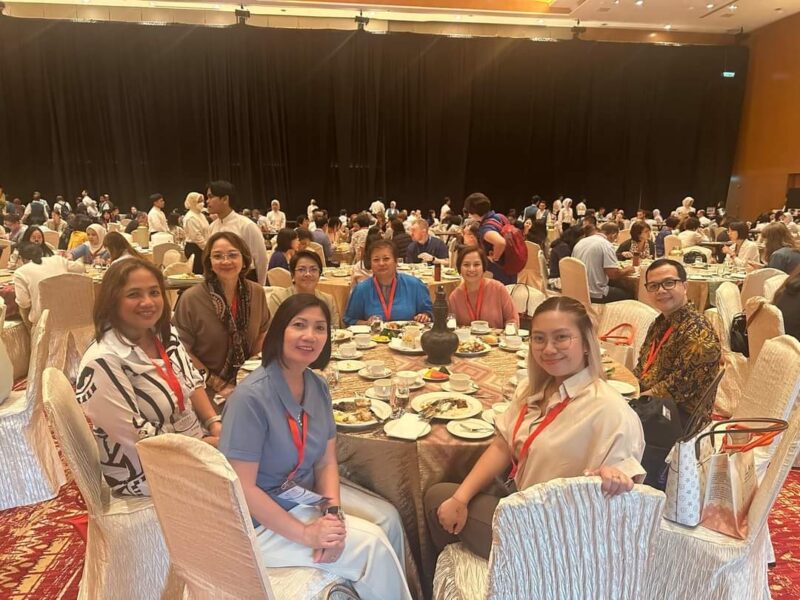
Some members of the Philippines delegation in the Banquet Hall during lunch
Editor’s note: the 21st AILA World Conference, celebrating the 60th anniversary of the Association Internationale de Linguistique Appliquée (AILA; “International Association of Applied Linguistics”), took place in Kuala Lumpur last week, hosted by the Malaysian Association of Applied Linguistics.
With several members of our team in attendance, we were able to bring you daily updates: Day 1, Day 2, Day 3, Day 4. Due to return travel and catch-up responsibilities, the final day report has been slightly delayed. We hope you find it useful nonetheless.
***
Notable highlights of the final day relate to Enric Llurda’s keynote about native-speakerism, a symposium featuring rising stars in Applied Linguistics, a book prize, multilingual catch-ups, and the changing of the guards.
Debunking native-speakerism in Applied Linguistics
Professor Enric Llurda was the final keynote speaker for this year’s conference with a timely topic on “Native-speakerism and standards in Applied Linguistics.” In this talk, foregrounded by his personal experiences, Professor Llurda explored native-speakerism and its definition and manifestation and the question of how it can be overcome. Llurda’s talk was very interesting in two respects: a timely celebratory reminder and a timely advocacy reminder. While Llurda lamented the ongoing devaluing of Other Englishes particularly in the global north, there is much to celebrate in the global south scholarship in terms of the recognition and validation of emerging varieties of English especially in post-colonial global south countries in Southeast-Asia. There is certainly more room for applied linguists to expand the work and advocate for the legitimacy of more emerging varieties of English.
Rising stars in Applied Linguistics Are Unpacking the Complexity of Multilingual Valorization
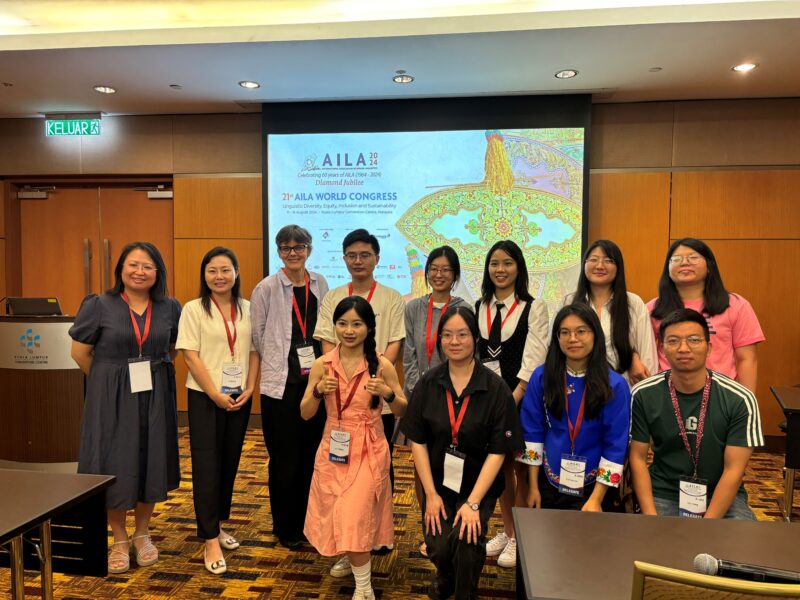
The Rising Stars of the Symposium “Unpacking the Complexity of Multilingual Valorization: Insights from Chinese-speaking Communities” with their mentors
One of the last symposiums of the conference, chaired by Professors LI Jia and ZHANG Jie, both key members of the Language-on-the-Move team, showcased diverse works of postgraduate students under their supervision. The symposium was titled “Unpacking the Complexity of Multilingual Valorization: Insights from Chinese-speaking Communities.”
This was one of the most inspiring symposia for me not only because it featured postgraduate research work (for all presenters this was their first presentation at an international conference), but because of the students articulate and incisive presentations. The topics covered in this symposium was quite diverse as can be seen in the list below:
The discussant for the symposium was Distinguished Professor Ingrid Piller, who had been the PhD supervisor of Professors LI Jia and ZHANG Jie, which means that the presenters were her “academic grandchildren” of sorts. Ingrid congratulated both the presenters and chairs, and praised them for approaching these under-researched multilingual contexts with great conceptual and methodological sophistication, with incisive analyses, and with a lot of passion to apply linguistics research to further the common good.
Winning a good book
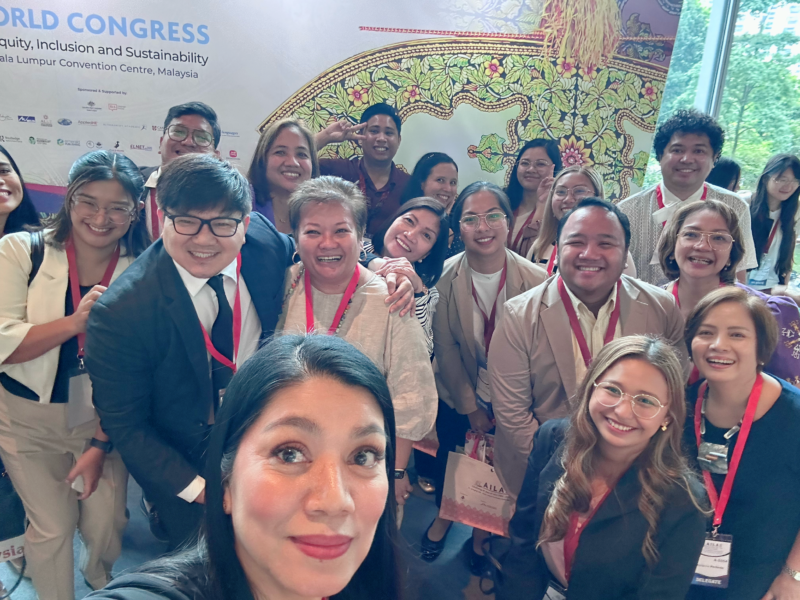
Delegates from the Philippines catching up during the conference
Lunch throughout the conference was fabulous and rounded out by lucky draws. I was particularly delighted that an early career researcher from the Philippines, Krizza Mae Balisong (University of Santo Tomas), won Linguistic Diversity and Social Justice on Day 5.
Multilingual catch-ups and local experiences
As has been said in previous reports, there were close to 2,000 attendees at the conference. And it really was impossible to attend all the sessions and meet everybody. As an applied linguist based in Sydney, Australia, one of the rewards I find in attending such a large conference is being able to meet long-standing colleagues and emerging scholars doing great applied linguistics work in the Philippines. Lunch times and coffee breaks were, therefore, organised to ensure one maximises these opportunities. It is in these liminal spaces that one gets to catch up and discuss new collaborations.
In addition, being based in an English-dominant country like Australia, I rarely have a chance to exercise my other linguistic identities of being a Tagalog-, a Cebuano-, and a Hiligaynon-speaker and discuss ideas in these languages. The AILA conference gave me that opportunity, and I managed to practice rarely used expressions. One of these is “buwis buhay” [tax life] (Laying one’s life for someone/something). In this context, this was often used in navigating the busy roads of Kuala Lumpur. In one usage, this was particularly used in reference to crossing the busy road to get to the much-coveted Musang King store.
Changing of the guards
Like every other participant, I am deeply grateful to the conference organizers from the Malaysian Association of Applied Linguistics, whose incredibly hard work over years of preparation made this success possible. In the closing ceremony, they must have been glad to pass the baton on to the Canadian Association of Applied Linguistics, who will host the AILA World Congress 2027 in Vancouver.
Missing #AILA2024?
The Language on the Move Day 5 report is now up: native speakerism, rising stars, and multilingual networking
So, #AILA2024 ended on this critique of native-speakerism by Enric Llurda, and then you walk into the nearest bookstore and see this: “How to sound like a native Korean speaker” 🤷♀️ pic.twitter.com/3nDLCNwIx6
— Language on the Move (@Lg_on_the_Move) August 16, 2024

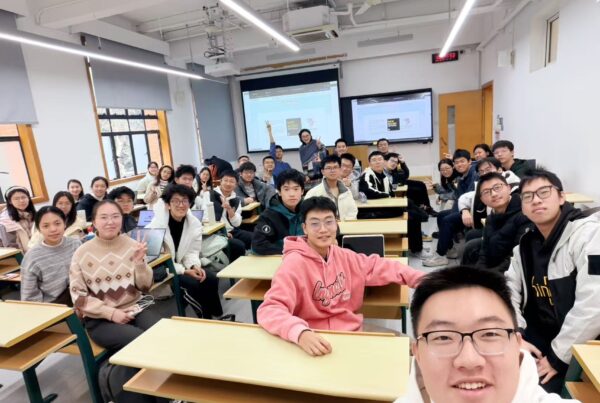
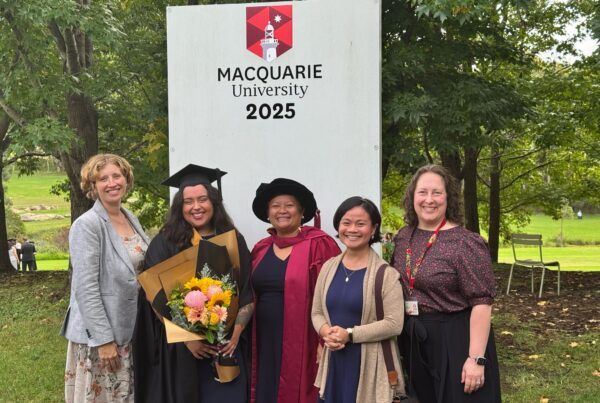
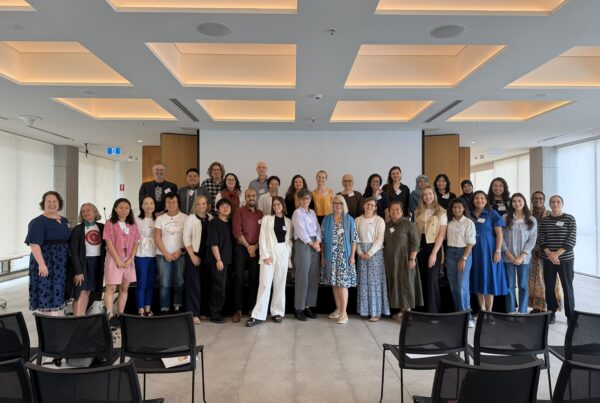


 This work is licensed under a
This work is licensed under a
Excellent work! It’s so wonderful to see how our collaboration expands into different countries and across generations. Thank you Loy for organizing our lovely gathering:-)